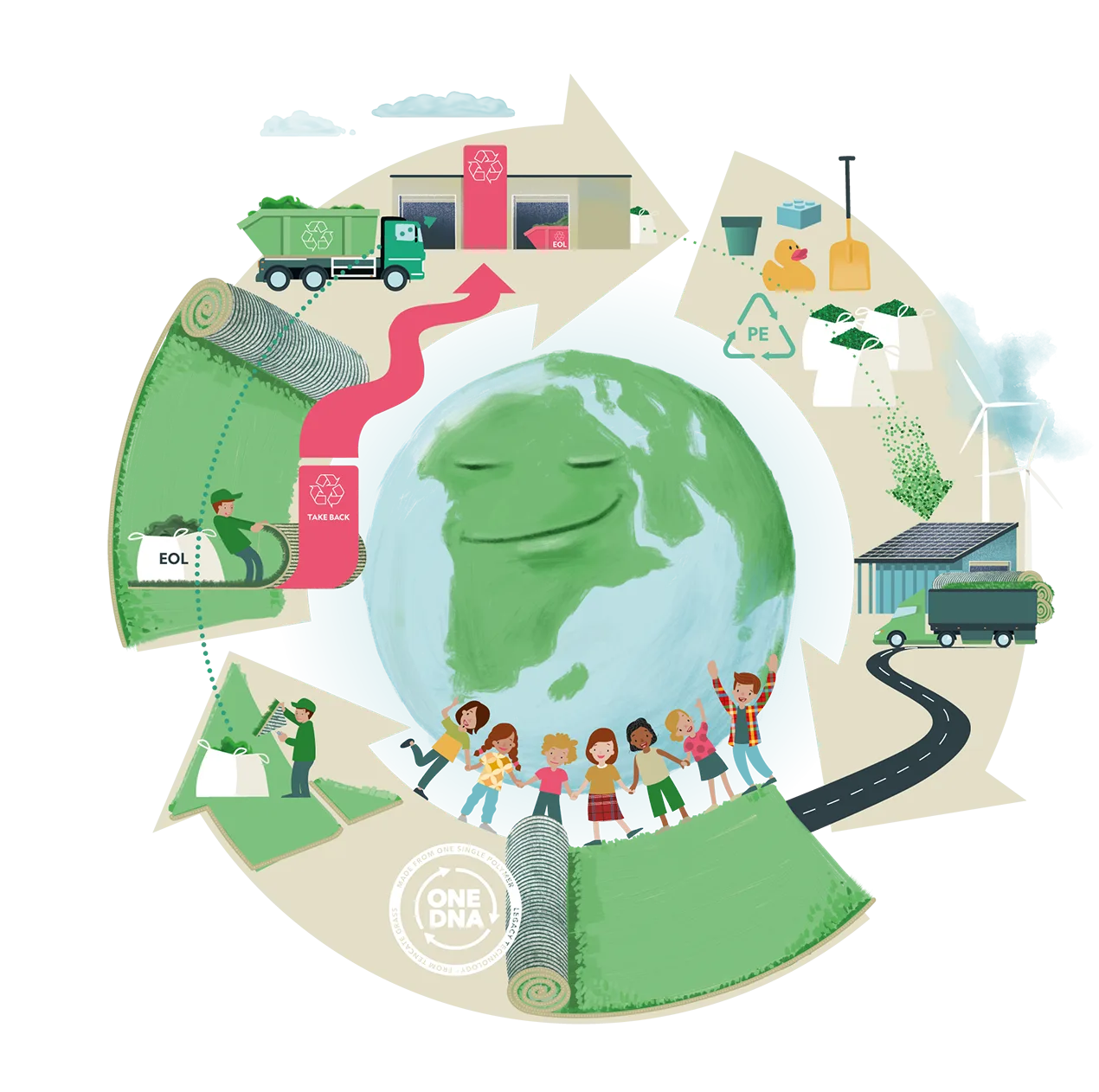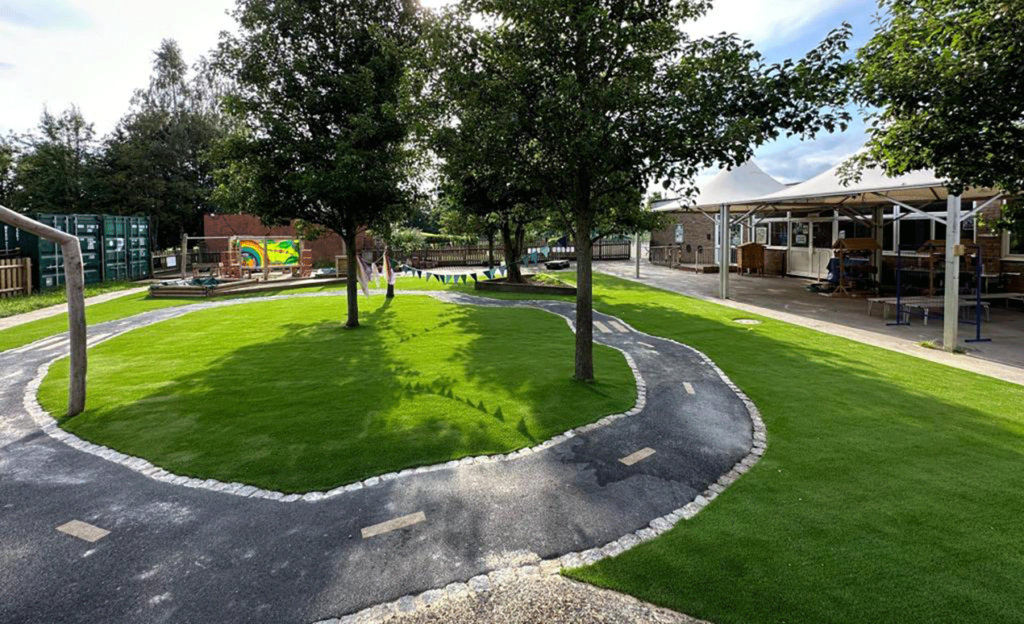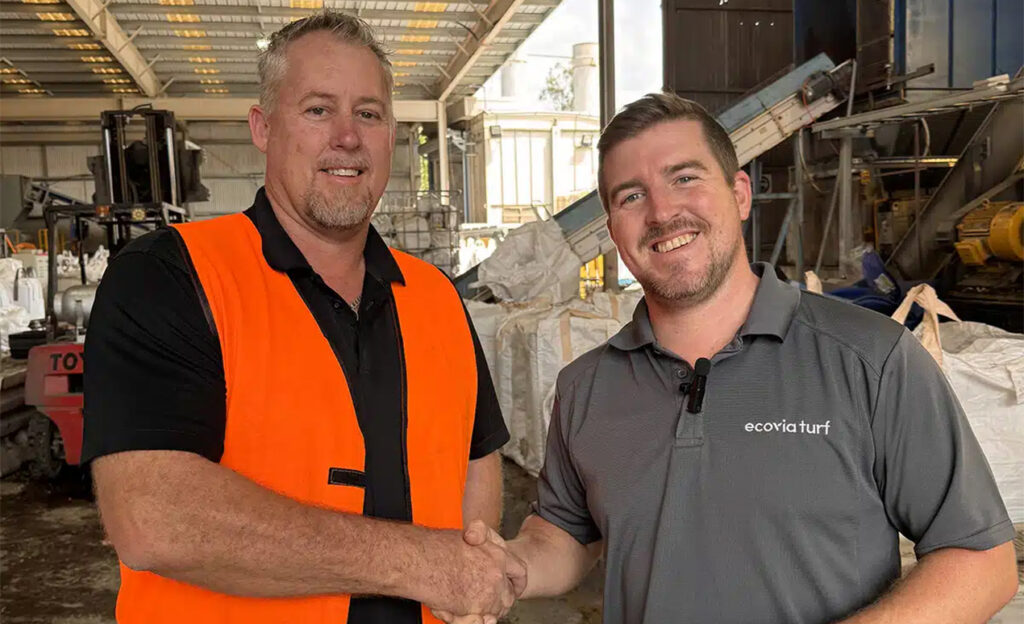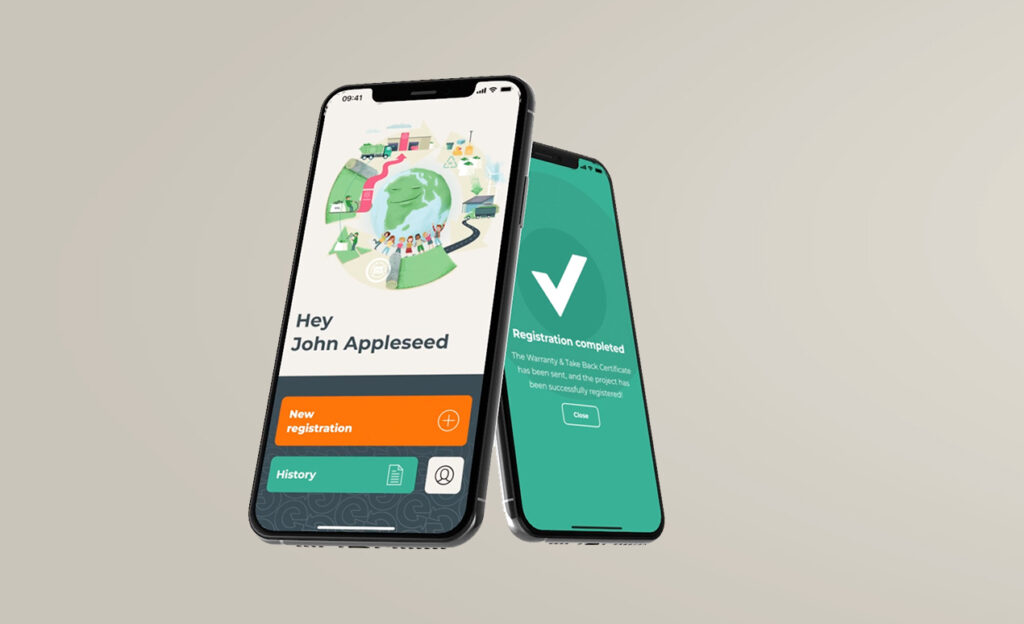Circularity means continuously reusing materials and resources, with the aim of reducing waste in the world. When products are reused, less waste is produced, and fewer new raw materials are required. LimeGreen® ONE-DNA™ is circular artificial grass. The entire turf is made from just one raw material, making it fully recyclable. The recycled material retains as much of its original value and purity as possible. Circular artificial grass can be completely reused for other products, eliminating waste.
Why is circularity important?
When waste is reused, it conserves resources. This is known as circularity. Recycling used materials creates new raw materials, reducing the need to produce new ones. For example, when plastic is recycled, there is no need to use new petroleum.
Circularity has three key benefits:
- Less waste
- Reduced CO2 emissions
- Reduced use of scarce raw materials
In the Netherlands, we aim for a circular economy, where we strive to reuse our products as much as possible and minimize waste.
Source: https://www.rijksoverheid.nl/onderwerpen/circulaire-economie/werking-circulaire-economie
High-Quality Reuse
The highest-quality reuse of resources is crucial for a circular economy. When products are designed for full reuse after their lifespan, waste disappears from our society. This is only possible if products are 100% recyclable.
Unfortunately, this is not always the case. If a product is made from multiple raw materials, it becomes difficult (downcycling) or even impossible to recycle.
What is downcycling?
There are various forms of recycling, and in many cases, a recycled raw material loses a significant portion of its original value and purity. This is referred to as downcycling.
Traditional artificial grass for gardens, playgrounds, or schoolyards is challenging to recycle due to its composition and often ends up in landfills. When it does reach recycling facilities, much of its usability is lost. The recycled material has lower quality and is less versatile for new products.
































